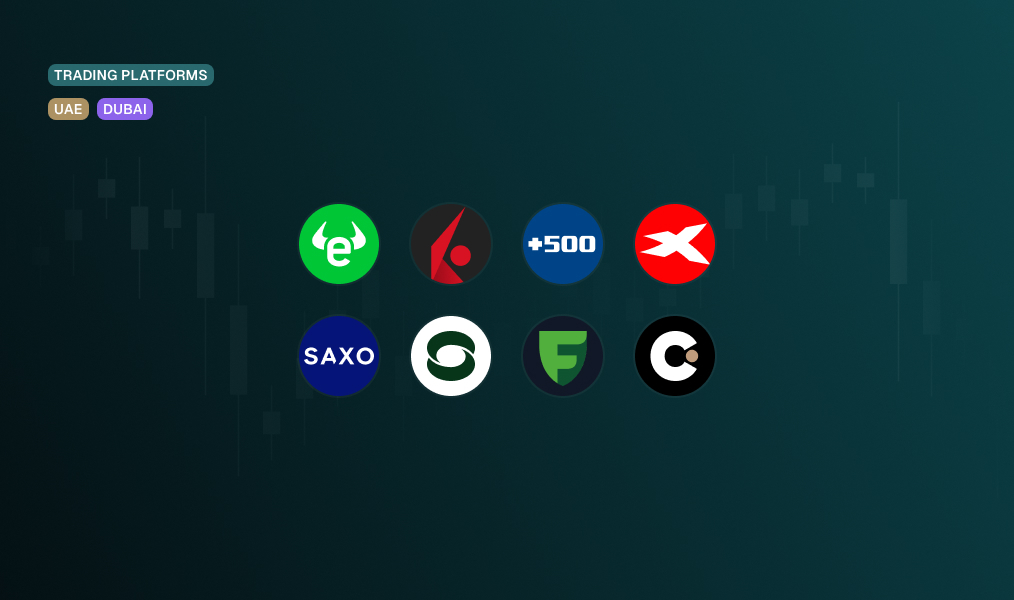Over the last few years, we at investingintheweb.com have spent hours listing, researching, and comparing European brokers to help our users invest.
Who can you trust with your money? How to avoid expensive fees? And how to choose the best trading platform to make your investments?
In this article, we help you find and compare the leading online brokers and trading platforms available in Europe.
Best brokers for long-term investing in Europe (in a nutshell)
- Interactive Brokers: Best overall. Extremely low fees, high security, and one of the highest assets under management (AUM) among retail brokers.
- eToro: Best for commission-free ETF investing and social trading. Offers a welcome bonus up to $500 for new users.
- XTB: Offers real stocks/ETFs with zero commission under certain limits.
- Freedom24: Best for access to high-yield ETFs (6%–12% in select cases). Offers a signup bonus.
- DEGIRO: Best if you’re looking for an execution-only broker (no CFDs). Huge European user base and broad market selection.
- Trading 212*: Great for beginners and earning interest. Offers a user-friendly app with zero-commission trades and a signup promotion.
- Lightyear: Best for beginners and ETFs. New users earn a free share worth up to €100 with the promo code INVESTINGINTHEWEB.
- Trade Republic: Best for interest on uninvested EUR cash and automated ETF savings plans.
- Revolut: Best for quick access to investments, while keeping a digital bank as well.
*When investing, your capital is at risk and you may get back less than invested. Past performance doesn’t guarantee future results.

Quick cost comparison: investing in the S&P 500
Long-term investors often look to buy an S&P 500 ETF.
Below is a brief example of how each broker handles fees on an S&P 500 ETF trade of roughly €1,000.
Actual costs may vary depending on your location and chosen ETF.
As you can see, most are pretty cheap.
In terms of costs, we would say that all the alternatives mentioned here are cheap for long-term investors.
DEGIRO is the most expensive one, considering that it charges a fixed fee every year.
Safety
Safe beats cheap! You must prioritize choosing a broker that is safe and that you can trust as you investment grow years down the line.
All the brokers mentioned here are regulated in Europe, and benefit from investor compensation schemes/funds.
Varies depending on the subsidiary. Two examples: Up to £85,000 for clients under IB U.K. Limited; Up to €20,000 for clients under IB Ireland Limited.
Up to €20,000 for clients under eToro (Europe) Ltd; Up to £85,000 for clients under eToro (UK) Ltd.
US and UK: up to 500k USD under SIPC.
Securities: up to €20,000 (from non-returned assets up to 90%)
Cash balance: up to €100,000
Varies between subsidiaries: Up to £85,000 for UK investors, up to €20,000 for European investors.
Securities: up to €20,000 (from non-returned assets up to 90%); Cash balance: up to €100,000
Varies by entity. Up to €20,000 for clients under XTB SA; Up to £85,000 for clients under XTB Limited.
Out of all the brokers mentioned here, we consider Interactive Brokers the safest in this list, given that:
- It is regulated by top-tier institutions such as the SEC, FCA, among others;
- It is publicly-traded, which generally means more transparency when compared with private companies.
- It the oldest company, having sustained through several financial crisis.
- It is the largest one by assets under management.
On the downside, it does not hold a banking license since it is not a bank – only DEGIRO and Trade Republic do.
If you want to know more about the safety of a broker, check out our Youtube video, where we uncover what happens if your broker goes bankrupt.
Our methodology: how we chose these brokers
Prioritize safety over costs
Safe beats cheap in the long run. We first look for brokers allowed to operate in Europe, regulated by top-tier authorities (FCA, BaFin, etc.).
We also check assets under management (AUM) and average user balances. Larger, well-capitalized brokers often have sturdier infrastructures to support long-term investors.
Product range
We confirm the broker offers the assets you plan to hold for years – often ETFs, stocks, or even bonds.
If you want crypto or options, ensure the broker truly supports them. (Note that “CFDs” are for short-term speculation, not typical buy-and-hold investing.)
Fees and transparency
We look at trading commissions, FX fees, inactivity fees, withdrawal fees, etc. “Zero commission” can hide an FX markup, so we check the full cost to invest, not just the headline figure.
Over many years, high fees can significantly reduce total returns, so transparency is crucial.
Currency support
Most European investors fund accounts in euros, but others may use GBP, CHF, or other currencies. A good broker should offer fair currency exchange rates or multi-currency accounts to avoid big conversion spreads.
Ease of use & long-term viability
We consider the user experience (web and mobile apps). Complicated platforms can be intimidating, but too “bare-bones” might hamper advanced features.
Ultimately, we expect a broker to remain reliable for years – so stable operations, reputable management, and robust customer support matter greatly.
Other resources
- Check our YouTube channel for in-depth reviews of each platform and guides on investing in the S&P 500 using different platforms.
- Read our full broker reviews for deeper insights into fees, order execution, and platform usability. If you’re curious which brokers we don’t recommend, we maintain a “not recommended” list based on our latest research.
- Check the latest brokerage signup bonuses, and the brokers with the highest interest rates online.
- Compare them based on fees, interest, products available, using our broker comparison tool.
Final thoughts and next steps
Choosing the best broker in Europe for long-term investing depends on your personal goals, preferred assets, and comfort with fees.
For some, a zero-commission app like Trading 212 or XTB is perfect.
Others might prefer the vast range and institutional-level security of Interactive Brokers.
Meanwhile, if you prioritize generating interest on idle cash, Trading 212 or Trade Republic stand out.
Remember: investing is a marathon, not a sprint. Prioritize safety, transparency, and a platform that truly supports your long-term goals. The good news is that Europe has never been richer in terms of broker choice – so pick wisely, keep fees low, and let time do the rest.





